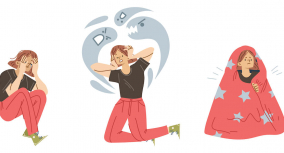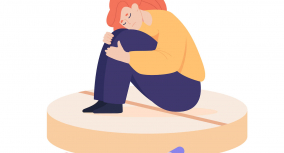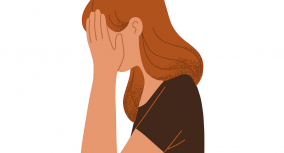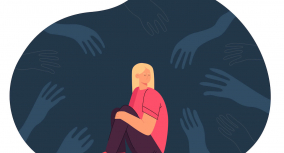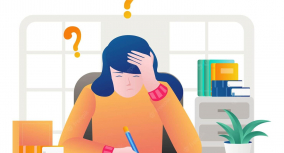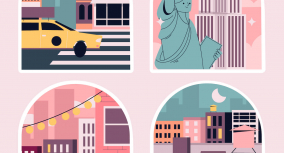Sylvia Plath’s The Bell Jar delves into themes of mental health, identity, and societal expectations. Through Esther Greenwood’s struggles, the novel examines alienation, ambition, and the constraints placed on women in the 1950s. The Bell Jar themes also explore the stigma of mental illness and the quest for individuality, with the “bell jar” symbolizing Esther’s feelings of entrapment.
In this article, Custom-Writing experts delve into the themes of The Bell Jar and offer insights into the novel’s exploration of identity and freedom.
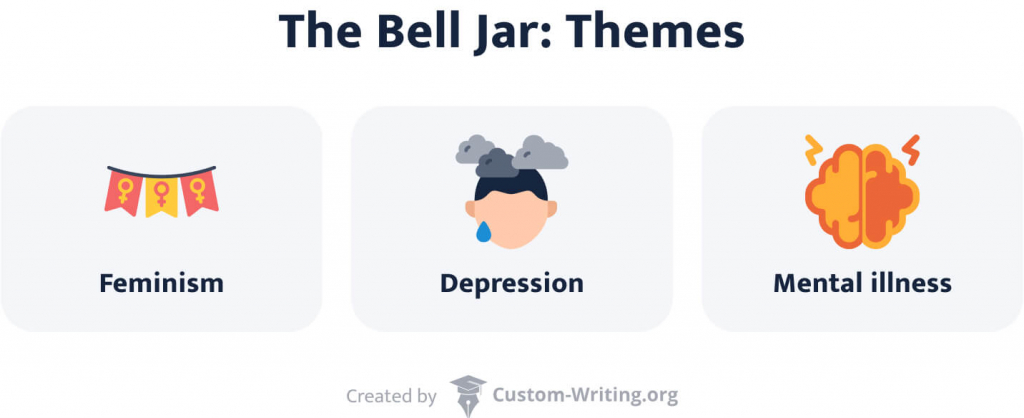
⚧️ The Bell Jar: Feminism & Gender Theme
The novel unveils the double standards for men and women that persist in society half a century after publication. The restrictive gender ideals preoccupy Sylvia Plath, as they hider female identity formation. This category is an important one in feminist criticism because patriarchal conventions throughout human history have limited female identity.
Esther is repetitively pushed into the feminine role appropriate for her time. Education is a thing, but it is a time when she shall find her future husband. Nobody expects a woman to become successful and famous. But everyone expects her to become a good housewife and mother. Even though Mrs. Greenwood wants Esther to learn shorthand writing (to get a job), it is a typically female profession that does not guarantee self-development.
The protagonist imagines her life as a fig tree, where fruits represent her choices. She has to select between a family and a career. Men rarely face the same dilemma. They can have a family and still lead an active professional life. For them, family life is a pleasurable supplement to their ordinary life, not their only mission.
One of the causes of Esther’s mental problems was her inability to fit into the gender role prepared for her by society. But meanwhile, she cannot find her own way, either. She thinks about premarital sex as a male prerogative, ignoring the fact that it is only a minor part of the patriarchal legacy.
Esther’s feministic thoughts are obscure and random. She is too young yet to see the entire picture of gender inequality. But she feels its effect and feels uncomfortable with her gender identity. Esther is not a lesbian, and she is not a rebel like Doreen to overlook social norms doing what she likes. She wants to live without being pointed at or instructed, like many other feminists.
The Bell Jar Quotes on Feminism
I wished I had a mother like Jay Cee. Then I’d know what to do. My own mother wasn’t much help. My mother taught shorthand and typing to support us ever since my father died…She was always on me to learn shorthand after college, so I’d have a practical skill as well as a college degree.
The Bell Jar, Esther Greenwood, Chapter 4
I thought it sounded just like the sort of drug a man would invent. Here was a woman in terrible pain, obviously feeling every bit of it or she wouldn’t groan like that, and she would go straight home and start another baby, because the drug would make her forget how bad the pain had been, when all the time, in some secret part of her, that long, blind, doorless and windowless corridor of pain was waiting to open up and shut her in again.
The Bell Jar, Esther Greenwood, Chapter 6
I climbed up on the examination table, thinking: ‘I am climbing to freedom, freedom from fear, freedom from marrying the wrong person, like Buddy Willard, just because of sex, freedom from Florence Crittenden Homes where all the poor girls go who should have been fitted out like me, because what they did, they would do anyway…’
The Bell Jar, Esther Greenwood, Chapter 18
😰 The Bell Jar: Depression Theme
Depression is the key theme in The Bell Jar. The novel describes the protagonist’s decline into a depressive episode and her psychiatric treatment. The author also was a depressive patient, which is why the book is autobiographic in many ways. Sylvia Plath killed herself a month after the novel’s publication. This fact makes her description of the psychiatric ward accurate and believable.
The first depressive symptoms appear at the beginning of the story when Esther comes to New York. She cannot enjoy the things many other girls would have adored. In Chapter 7, when Esther meets Constantin, the girl realizes that he made her feel happy for the first time since the age of nine. She thinks a lot about death. In Chapter 9, she discussed the expected execution of the Rosenbergs with Hilda. The friend was glad they were going to be killed. People who plan their suicide are often sensitive to any events when other people die.
The following sad events accelerate her depressing tendency. After a barely familiar man tries to rape her at a party, she does not find strength even to pack her clothes. Esther throws them off the roof. She does not even wipe off the blood from her face on her way home. At the station, Mrs. Greenwood tells Esther she has not been accepted for the writing course. She cannot sleep and does not wash for weeks. The girl cannot make any plans for the summer or the upcoming study year. Gradually, her will fades away. Then the suicide attempts come.
Shattering the bell jar symbolizes both gender and depression. Esther manages to lift it slightly, becoming a successful academic student and returning home from the psychiatric ward. But she never gets rid of the constraining factors that destroy her life.
The Bell Jar: Depression Quotes
I felt very still and empty, the way the eye of a tornado must feel, moving dully along in the middle of the surrounding hullabaloo.
The Bell Jar, Esther Greenwood, Chapter 1
‘I can’t sleep. I can’t read.’ I tried to speak in a cool, calm way, but the zombie rose up in my throat and choked me off. I turned my hands palm up.
The Bell Jar, Esther Greenwood, Chapter 10
The silence drew off, baring the pebbles and shells and all the tatty wreckage of my life. Then, at the rim of vision, it gathered itself, and in one sweeping tide, rushed me to sleep.
The Bell Jar, Esther Greenwood, Chapter 13
I knew I should be grateful to Mrs Guinea, only I couldn’t feel a thing. If Mrs Guinea had given me a ticket to Europe, or a round-the-world cruise, it wouldn’t have made one scrap of difference to me, because wherever I sat… I would be sitting under the same glass bell jar, stewing in my own sour air.
The Bell Jar, Esther Greenwood, Chapter 1
All the heat and fear had purged itself. I felt surprisingly at peace. The bell jar hung, suspended, a few feet above my head. I was open to the circulating air.
The Bell Jar, Esther Greenwood, Chapter 18
🤯 The Bell Jar: Mental Illness Theme
Her depression transforms into a mental illness when Esther starts making the first suicidal attempts. A vicious circle eats up her life. Esther no longer enjoys the activities that previously brought satisfaction. She is not motivated to do anything enjoyable, which brings sadness and vice versa. It destroys her self-esteem and self-care. But the more she abandons her physical self, the worse her mental condition gets.
Esther does not believe her first psychiatrist can help her. In fact, the doctor worsens her condition further. As later revealed by Dr. Nolan (Esther’s second psychiatrist), Dr. Gordon incorrectly used electric shock therapy. This negative experience intensified Esther’s hopelessness. Her mother perceives her mental illness as some kind of misbehavior. Esther even promises to become more cooperative with the medical staff to be released from the hospital. But evidently, she does not manage that.
Esther matter-of-factly describes her suicidal thoughts as if they were some everyday business-like going to a grocery store or cleaning one’s teeth. This practice indicates her disconnectedness from the mother and friends. She no longer worries what society thinks of her unwashed body and unchanged clothes.
The girl takes a whole bottle of sleeping pills but survives. She never thinks about how these events could hurt her mother. Esther has lost her connection with reality due to the “bell jar.” It does not let “fresh air” enter her mind and soul, and she has to suffocate with her own “sour air.”
The book offers us a lively depiction of how several adverse events can bring a person from commonplace sadness to death. After all, depression can be a fatal disease, as Joan Gilling illustrated. It is wrong to think that depressive people can decide to become happy again or make up their minds to reject their suicidal thoughts. They require medication and treatment like any other patient.
The Bell Jar: Quotes on Mental Illness
So I told him again, in the same dull, flat voice, only it was angrier this time, because he seemed so slow to understand, how I hadn’t slept for fourteen nights and how I couldn’t read or write or swallow very well.
The Bell Jar, Esther Greenwood, Chapter 11
I made out men and women, and boys and girls who must be as young as I, but there was a uniformity to their faces, as if they had lain for a long time on a shelf, out of the sunlight, under siftings of pale, fine dust.
The Bell Jar, Esther Greenwood, Chapter 12
I had bought a few paperbacks on abnormal psychology at the drug store and compared my symptoms with the symptoms in the books, and sure enough, my symptoms tallied with the most hopeless cases.
The Bell Jar, Esther Greenwood, Chapter 13
To the person in the bell jar, blank and stopped as a dead baby, the world itself is the bad dream.
The Bell Jar, Esther Greenwood, Chapter 20
Thank you for reading this article! You might also want to take a look at The Bell Jar essay topics collection. And if you need to make the text of your essay more colorful, try our paraphrasing tool. Any questions left? Check the QA section!
